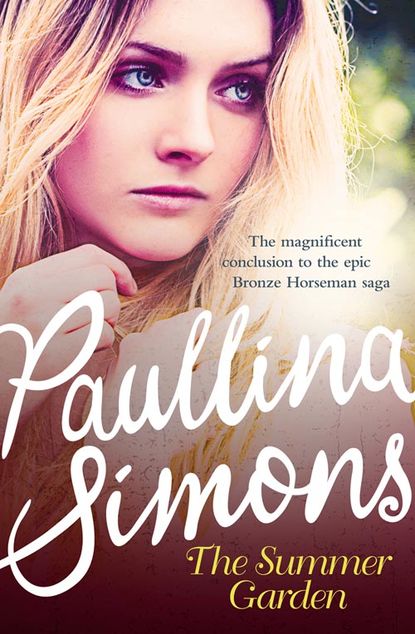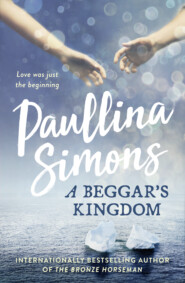По всем вопросам обращайтесь на: info@litportal.ru
(©) 2003-2025.
✖
The Summer Garden
Настройки чтения
Размер шрифта
Высота строк
Поля
And a day later Tatiana finally figured out why this place was so close to her heart. With its long grasses and sparkling waters, the field flowers and the pines, the deciduous smells coupled with the thinness in the air—it reminded her of Russia! And when she realized this—the minutes and hours of claret and maroon maples, the gold mountain ash and swaying birches piercing her heart—she stopped smiling.
When Alexander came home from the boat that evening and went up to her, as usual sitting on the bench, and saw what must have been her most unresponsive face, he said with a nod, “Ah. And there it finally is. So … what do you think? Nice to be reminded of Russia, Tatiana Metanova?”
She said nothing, walking down to the dock with him. “Why don’t you take the lobsters, go on up?” he offered. “I’ll keep the boy while I finish.”
Tatiana took the lobsters and flung them in the trash.
Alexander bit his amused lip. “What, no lobsters today?”
She strode past Alexander to the boat. “Jim,” she said, “instead of lobsters, I made spaghetti sauce with meatballs. Would you like to come have dinner with us?”
Jimmy beamed.
“Good.” Tatiana turned to go, and then, almost as an afterthought, said, “Oh, by the way, I invited my friend Nellie from Eastern Road to join us. She’s a little blue. She just found out she lost her husband in the war. I hope you don’t mind.”
Jimmy, as it turned out, didn’t mind. And neither did a slightly less blue Nellie.
Mrs. Brewster was beaten for her rent money again. Tatiana was cleaning the cut on her hand for her, while Anthony’s eyes, as somber as his father’s, stared at his mother from the footstool at her feet.
“Mama was a nurse,” said Anthony reverentially.
Mrs. Brewster watched her. There was something on her mind. “You never told me where you come from, the accent. It sounds—”
“Russian,” said the three-year-old whose father wasn’t there to stop him.
“Ah. Your husband a Russki, too?”
“No, my husband is American.”
“Dad is American,” said Anthony proudly, “but he was a captain in the—”
“Anthony!” Tatiana yanked his arm. “Time to go get Dad.”
The next day Mrs. Brewster expressed the opinion that the Soviets were nasty communists. This was her son’s view. She wanted another seven dollars for the water and electric. “You’re cooking all the time on my stove there.”
Tatiana was rattled at the shakedown. “But I make dinner for you.”
Mrs. Brewster said, patting the bandage Tatiana had wrapped around her hand, “And in the spirit of communism, my son says he wants you to pay thirty dollars a week for the room, not eight. Or you can find another collective to live on, comrade.”
Thirty dollars a week! “All right,” said Tatiana through her teeth. “I’ll pay you another twenty-two a week. But this is just between us. Don’t mention it to my husband.” As Tatiana walked away, she felt the glare of someone who’d been beaten by her son for rent money and yet still trusted him more.
No sooner had they met Alexander on the dock than Anthony said, “Dad, Mrs. Brooster called us nasty communists.”
He glanced at Tatiana. “She did, did she?”
“She did, and Mama got upset.”
“She did, did she?” He sidled up to her.
“No, I didn’t. Anthony walk ahead now, I have to talk to your father.”
“You did, you did,” Anthony said. “You get that tight mouth when you get upset.” He tightened his mouth to show his father.
“Doesn’t she just,” said Alexander.
“All right you two,” Tatiana said quietly. “Will you go on ahead, Anthony?”
But he lifted his arms to her, and she picked him up.
“Dad, she called us communists!”
“I can’t believe it.”
“Dad?”
“Yes?”
“What are communists?”
That night before dinner, of lobsters (“Oh, not again!”) and potatoes, Anthony said, “Dad, is twenty-two dollars a lot or a little?”
Alexander glanced at his son. “Well, it depends for what. It’s a little money for a car. But it’s a lot of money for candy. Why?”
“Mrs. Brooster wants us to pay twenty-two more dollars.”
“Anthony!” Tatiana was near the stove; she didn’t turn around. “No, the child is impossible. Go wash your hands. With soap. Thoroughly. And rinse them.”
“They’re clean.”
“Anthony, you heard your mother. Now.” That was Alexander. Anthony went.
He came up to her by the sink. “So what’s going on?”
“Nothing.”
“It’s time to go, don’t you think? We’ve been here two months. And soon it’s going to get much colder.” He paused. “I’m not even going to get started on the communists or the twenty-two dollars.”
“I wouldn’t mind it if we never left here,” she said. “Here on the edge of the world. Nothing intrudes here. Despite …” she waved her hand to Mrs. Brewster upstairs. “I feel safe here. I feel like no one will ever find us.”
Alexander was quiet. “Is someone … looking for us?”
“No, no. Of course not.” She spoke so quickly.
He placed two fingers under her chin and lifted her face to him. “Tania?”
She couldn’t return his serious gaze. “I just don’t want to go yet, okay?” She tried to move away from his hand. He didn’t let her. “That’s all. I like it here.” She raised her hands to hold on to his arms. “Let’s move to Nellie’s. We’ll have two rooms. She has a bigger kitchen. And you can go for a drink with your pal Jimmy. As I understand, he’s been coming around there a little.” She smiled to convince him.
Letting go of her, Alexander put his plate in the sink, clanging it loudly against the cast aluminum sides. “Yes, let’s,” he said. “Nellie, Jimmy, us. What a fine idea, communal living. We should have more of it.” He shrugged. “Oh, well. Guess you can take the girl out of the Soviet Union, but you can’t take the Soviet Union out of the girl.”











